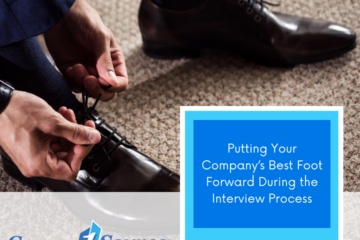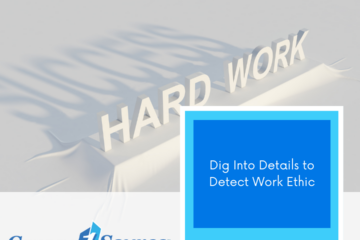The number one question hiring managers have about a candidate is if they have a strong work ethic, according to Scott Wedel, Executive Recruiter with Career1Source. Determining if someone has a good work ethic is extremely difficult to do and can be confused with other aspects of personality and working style.
“A high energy individual may have the capacity to do a lot, but work ethic boils down to a person’s motivation to do things,” Wedel says.
There are four areas that hiring managers can utilize to help get a sense for a candidate’s work ethic:
- Accomplishments in previous work roles
- Personal accomplishments
- Behavioral assessment
- Reference checks
When evaluating work accomplishments from previous roles, Wedel says that it’s best to ask candidates open-ended questions and listen for the STAR method (situation, task, action, results) in how they respond.
“A lack of details is a red flag,” Wedel adds. “Often, hiring managers don’t dig into the details of a person’s story—but they should.”
Another area to examine is a major personal accomplishment that tells you about the candidate’s work ethic, such as running a marathon or summiting a fourteener outside of their day job. Again, Wedel encourages hiring managers to dig for details.
Behavioral assessments can help hiring managers analyze a candidate’s basic natural tendencies and identify certain profiles that tend to be more proactive vs. reactive.
An often overlooked piece of the puzzle is taking the step to ask for and call references provided by the candidate.
“Don’t just ask about the candidate’s work accomplishments—ask about their work ethic, too,” Wedel says. “Ask specific questions and look for details.”
Factors to Keep in Mind
It’s also important to remember that if a candidate doesn’t meet one of the four hiring pillars (culture, behavior, skills, performance), then their work ethic may not be the problem.
“A candidate may have an excellent work ethic, but if they’re not a good culture fit, their work ethic is not going to be perceived as such and they won’t be successful,” Wedel says. “If a candidate starts a new job and they’re not a good fit, it may decrease their motivation to do the job. It’s not the candidate’s work ethic that’s the problem—it’s a company fit and culture problem.”
Another area that tends to get mixed up is work ethic vs. work-life balance. Wedel notes that these two often get pitted against each other, but that shouldn’t be the case.
“A strong work ethic asks if they get the job done?” Wedel says. “A desire for work-life balance is not a good measure of a candidate’s work ethic. They might be really focused on their job during work hours, but when they’re off the clock, they’re focused on their family. The best employers recognize that employees need time to recharge.”
What work ethic looks like may be different for each generation in the workforce, but Wedel observes that work ethic is not a generational issue. For example, younger employees may be more tech savvy, so they’re more efficient in getting work done—but that doesn’t mean they didn’t work hard to get it done, even if it took less time.
“Each generation has people that want to work hard,” he says. We have to be aware that our personal way of ‘working hard’ may not look the same as a different generation’s way of ‘working hard’. It’s important to recognize this generational bias.”



